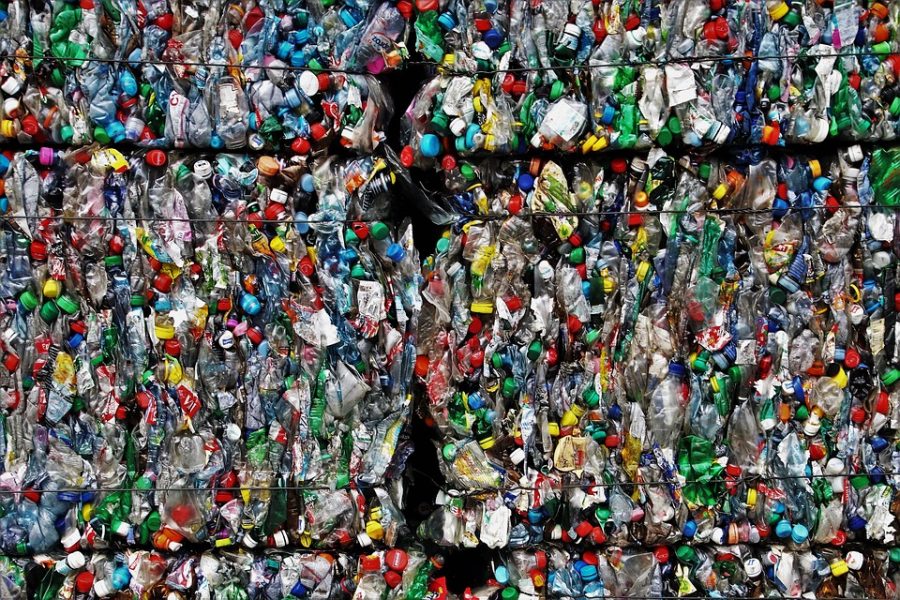Cushman: Salt Lake City Should Tax Plastic Bags
(Courtesy Pixabay)
June 23, 2020
I went to Seattle for the first time in 2016. I had always loved the city for its liberal attitude, but found it a little annoying when my parents stopped to get snacks at a grocery store and insisted that we carry the groceries back to the hotel in order to avoid paying the city’s plastic bag tax. Municipalities all over the country are adopting similar plastic bag taxes and bans in an effort to reduce plastic waste. Logan recently became the third city in Utah to adopt a single-use plastic bag ban. As the state capital and the city in Utah with the largest population, Salt Lake City should follow our neighbors’ lead and implement a plastic bag tax.
Single-Use Plastic is Outdated and Unethical
Plastic is an environmentally devastating material, but we consume a lot of it nonetheless. Every year, 100 billion plastic bags are consumed in the United States, with the average family taking home about 1,500 per year. Consumers typically use plastic bags for less than an hour, but they can last up to 1,000 years in our landfills. Just as harmful, the process of manufacturing bags relies on oil and natural gas and produces pollution because of the use of certain chemicals. Americans’ plastic bag use is untenable as it currently stands. Just to buy our groceries, we consume tons of unnecessary plastic (often without recycling it) despite the damage it causes to our environment. As it has become more and more evident that plastic bag use is a major, albeit solvable problem, many grocery stores have begun offering alternatives in the form of paper and reusable bags–so plastic bag use is not only environmentally unethical but unnecessary and outdated.
Bag Taxes Work
Plastic bag taxes are highly effective at mitigating plastic bag use, deterring plastic bag use, and reminding consumers to seek out more green-friendly alternatives. A Beijing study about plastic bag taxes showed that a charge for plastic bags reduced new bag usage by 49 percent. A little closer to home, Chicago was able to more than double reusable bag usage and decrease the likelihood of disposable bag usage by 27.7 percent within a year of implementing a plastic bag tax. In Colorado, one of Utah’s neighboring states, the city of Aspen has been able to significantly reduce the use of single-use bags, with 15 percent of consumers purchasing paper bags and all other consumers using reusable bags or none at all.
Similar to “sin taxes” on things like alcohol and tobacco products, a plastic bag tax encourages consumers to do better without removing their liberty or freedom to choose. It is a simple, effective way to build greener communities without removing consumer choice, spending tax dollars or causing locals excessive financial strain.
Salt Lake City’s Responsibility
Salt Lake City has been described as “an island of liberal blue in a sea of conservative red.” It is much different from the rest of Utah, demographically and ideologically. Utah has traditionally lagged behind other states not only on environmental issues but on mitigating plastic pollution specifically. As one of the few cities in this state with the political landscape to pass a plastic bag tax, it is vital that Salt Lake City takes this step and dedicates itself to reducing plastic waste. If liberal Salt Lake City cannot prioritize greener living by committing to a plastic bag tax, it is unlikely that other cities will recognize it as a feasible way to reduce single-use plastic.
Last year, my colleague Nain Christopherson wrote that “an initiative like a plastic bag ban—or even a plastic tax—in our red state could help to depoliticize basic environmental issues,” and emphasized that reducing plastic waste in Salt Lake City could pave the way to a statewide reduction in plastic waste and solutions to related issues. As Utah’s blue island, as the state’s most populous city and as Utah’s capital, Salt Lake City has a responsibility to set an example. We can do that by committing to simple and effective environmentally friendly policies like a plastic bag tax.
At the end of the day, there is no reason for Salt Lake not to implement a plastic bag tax—it’s a common-sense solution to an environmental problem Utah has been slow to address and an opportunity for us to lead the way in making basic environmental issues a priority across the state. Local leaders should take steps to make this change as soon as possible to preserve the beauty, the environmental health and the progressive reputation of our city.








